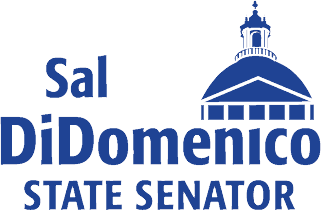Senator DiDomenico Celebrates Signing of Student Opportunity Act Bill invests $1.5 billion in Massachusetts public schools
(from left to right) Senator Sonia Chang-Diaz, Superintendent of Chelsea Public Schools Mary Bourque,
and Senator Sal DiDomenico
BOSTON – Last week, Senator Sal DiDomenico joined with his colleagues in the Legislature and education advocates from across the state at the official bill signing ceremony for the Student Opportunity Act. Earlier in November, both chambers of the Massachusetts Legislature unanimously voted to enact this bill, which ensures public schools have the resources needed to provide high-quality education to students across the state, regardless of zip code or income level. Over the seven-year implementation timeline, the Student Opportunity Act will provide an estimated $1.5 billion in new funding to support our public schools.
These funds will have a positive and direct impact on cities in Senator DiDomenico's district such as Everett, Chelsea and Boston, and an increase of tens of millions of dollars will be allocated directly to these school departments. In addition, there will be a permanent fix to how the state counts our economically disadvantaged youth. This issue, in particular, has been an area DiDomenico has focused on to ensure we get an accurate number so districts will get the funding they need to serve all children.
In 2015, Senator DiDomenico was appointed to serve as a member of the Foundation Budget Review Commission (FBRC), which was charged with reviewing the state’s Chapter 70 education funding formula and identifying “educational programs and services necessary to achieve the Commonwealth’s educational goals.” Through their review, the FBRC estimated that Massachusetts public schools did not have the full funding needed to educate all the Commonwealth’s students — by an estimated $1 to 2 billion— and made a series of recommendations to reform and update the state’s education formula. The Student Opportunity Act that was signed by Governor Baker fully implements the recommendations of the FBRC and provides huge funding increases in new Chapter 70 aid over and above inflation when fully implemented over the next seven years.
“The Student Opportunity Act is the culmination of many years of work from legislators, education experts, and grassroots advocates alike, and I could not have been happier to celebrate this bill signing last week with everyone who helped to make this legislation possible,” said Assistant Majority Leader Sal DiDomenico (D-Everett). “This is going to be a game changer for our schools, and I am very grateful the Education Committee Chairs for crafting such a strong piece of legislation and Senate President Karen Spilka and House Speaker Bob DeLeo for their commitment to getting this done for our students. Of course, I want to also thank and congratulate my friend Senator Sonia Chang-Diaz who championed this legislation in the Senate and whom I have had the pleasure of working with on this issue for years now. Equitable education funding has been a longtime priority of mine, and I am proud to say that this day has finally come for the students and educators of our Commonwealth.”
The Student Opportunity Act provides significant support to school districts that serve English learners and high concentrations of low-income students. At the same time, all school districts across the Commonwealth will benefit from updates to the existing funding formula, along with increased state investments in vital education aid programs such as special education transportation, school construction and renovation, and the 21st Century Education Program.
Adopting the recommendations of the FBRC, the Student Opportunity Act modernizes the K-12 education funding and policy landscape in four areas:
Estimates school districts’ employee and retiree health care costs using up to date health insurance trend data collected by the state’s Group Insurance Commission (GIC).
Increases special education enrollment and cost assumptions to more accurately reflect district enrollment.
Increases funding for English learners (EL) and differentiates funding by grade level to reflect the greater resources required to educate our older EL students.
Addresses the needs of districts educating high concentrations of low-income students by:
Providing additional funding based on the share of low-income students in each district; districts educating the largest percentage of low-income students will receive an additional increment equal to 100 percent of the base foundation; and
Returning the definition of low-income to 185 percent of the Federal Poverty Level, as opposed to the 133 percent level used in recent years.
Governor Charlie Baker signed this bill into law on November 26, 2019 at the English School in Boston.
###

